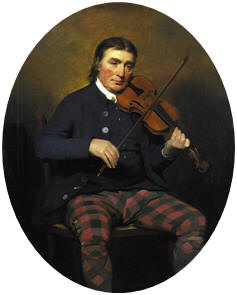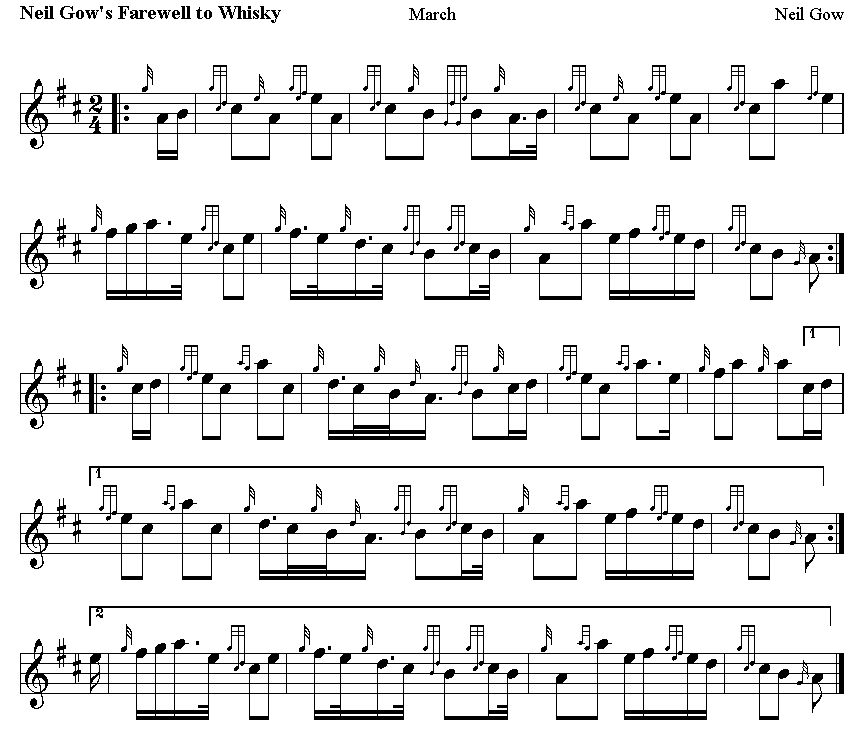Niel Gow (1727-1807) was possibly the most famous Scottish fiddler of the 18th century. Gow was born in Inver, Perthshire, as the son of John Gow and Catherine McEwan. He started playing the fiddle when very young and at age 13 received his first formal lessons from one John Cameron. In spite of being something of a musical prodigy, he originally trained as a plaid weaver, but eventually gave up that trade to become a full-time musician. He was widely considered the best fiddle player in Perthshire, an area which was renowned for its musicians - the story goes that at age 17 he entered a competition that was being judged by John McCraw, a blind musician, who awarded him the first prize and then went on to claim that he "would ken his bow hand among a hunder players" (detect Niel's style among a hundred players). This attracted the attention of the Duke of Atholl, who became Niel's patron, and also ensured Niel's employment for balls and dance parties put on by the local nobility. In time he became renowned as a fiddler.
Niel Gow was married
twice. His first wife
was Margaret Wiseman,
and they had five sons
called William, John,
Andrew, Nathaniel, and
Daniel, as well as three
daughters. While Daniel
probably died as a
child, the other four
became musicians and/or
music sellers; Niel
survived William (who
died in 1791 at age 40)
and Andrew (who died in
1794). Of Niel's sons,
Nathaniel is by far the
most well-known and
another fine composer of
Scottish music, with
nearly 200 tunes to his
credit. After having
been widowed, Niel
married Margaret
Urquhart from
Niel Gow composed a lot of dance music - according to John Glen (1895) he put his name to 87 tunes, "some of which are excellent" - much of which forms the backstay of Scottish country dance music even today. However it must be said that he was not above pinching good material from other composers to republish under his own name; Glen claims that from the 87, at least a quarter are derived from older tunes or are straight rip-offs from tunes published earlier elsewhere, often under a different title. This being a common practice at the time, it didn't seem to hurt his reputation a whole lot; in fact, the famous painter Henry Raeburn was commissioned to paint him several times.



